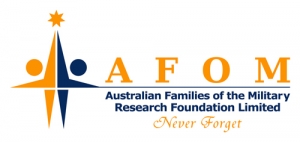Pre-existing Mental Illness Leads to Increased Likelihood of PTSD
A study published in the May 2011 issue of Archives of General Psychiatry discovered that soldiers with mental illness more often get PTSD when they return from the battlefield. Those with depression, anxiety disorders or another psychiatric illness were found to be more than twice as likely to develop the condition as their peers who had not experienced a mental illness.
While treatments, such as talk therapy, have proved effective in helping individuals living with PTSD, the military is contemplating taking steps to prevent the development of PTSD in the first place. One way they may do this is by identifying those at high risk and preparing them psychologically for combat.
The study examined more than 22,000 soldiers before and after they were deployed to Iraq or Afghanistan. Prior to deployment, just over three percent had been diagnosed with a mental illness. Upon returning, however, more than eight percent had symptoms of PTSD.
PTSD Linked with Heart Disease
Examining U.S. war veterans, researchers have discovered that those with PTSD were more likely to have fatty buildup, or plaque in the arteries leading to the heart, called coronary artery disease. Whereas 59 percent of vets not diagnosed with PTSD had heart disease, more than three-quarters of vets with PTSD did. The results were published in the May 2011 issue of American Journal of Cardiology.
Although the results do not necessarily mean PTSD causes heart disease, it does mean that it’s not enough to only worry about the mental toll of a disaster. It is important to have integrated physical and mental health care.
The researchers noted that, as with all mental illnesses, early treatment is important. Not only can it help reduce the potential negative psychological effects it can also reduce the potentially harmful physical effects as well.
PTSD Increases Fearful Responses
After experiencing a traumatic event it makes sense that the brain would induce fear responses to a similar situation, such as a veteran hearing gunfire. However, our brain appears to “generalize” to other events that do not as closely resemble the initial traumatic event, such as car back firing. A new study published in the February 2011 issue of Nature Neuroscience tried to find out why are brain uses the mantra of “better safe than sorry.”
Part of the reason is that a traumatic event is often tied to emotion. Emotional experiences have been typically been found to improve learning. Fear, however, reduces our ability to differentiate between potential threats. This in turn impairs learning about them.
The research finds that fear not only impacts reactions to experiences, but also our very perceptions of the world itself. It suggests that individuals experiencing PTSD may literally be unable to distinguish between threatening and non-threatening situations.
Letters: A Preventive Measure for PTSD?
Although discovering the latest treatments for those living with PTSD is extremely important, it would be ideal of course if PTSD could be prevented in the first place. A new study published in the June 2011 issue of Journal of Traumatic Stress, discovered that soldiers who had been stationed in Iraq, and were happily married, exhibited fewer symptoms of PTSD if they engaged in more frequent communication with their spouse, especially when the communication involved letters and emails rather than phone calls, instant messages or video chats. However, increased communication between unhappily married couples actually led to increased stress.
Letters and emails were perhaps more effective in reducing the likelihood of PTSD, even more so than even video chats, because they were apt to be carefully crafted and supportive and could be read repeatedly. Although not as effective, other forms of communication still decreased the occurrence of PTSD, pointing to the importance of receiving support from family, friends and community during times of stress.
Alternative Treatments for PTSD
Alternative methods of treatment for mental health have gained popularity in recent years as more studies have shown the potential health benefits of these practices. One of these methods is transcendental meditation (TM). Published in June 2011 issue of Military Medicine, a pilot study conducted discovered that TM helped alleviate symptoms of PTSD and improve quality of life in a small group of veterans. While larger, placebo-controlled studies should be undertaken to determine the effectiveness of TM for soldier’s living with PTSD.
Although TM alone may not be enough to combat all the symptoms of PTSD, it appears to be an effective treatment for reducing some of the symptoms. Additionally, TM is also easy to learn and perform, and was well accepted by the subjects in the study.
Although, a placebo effect can not be ruled out, the results are similar to those found in an earlier randomized controlled trial of the TM technique as a treatment for combat related PTSD among Vietnam War Veterans.




